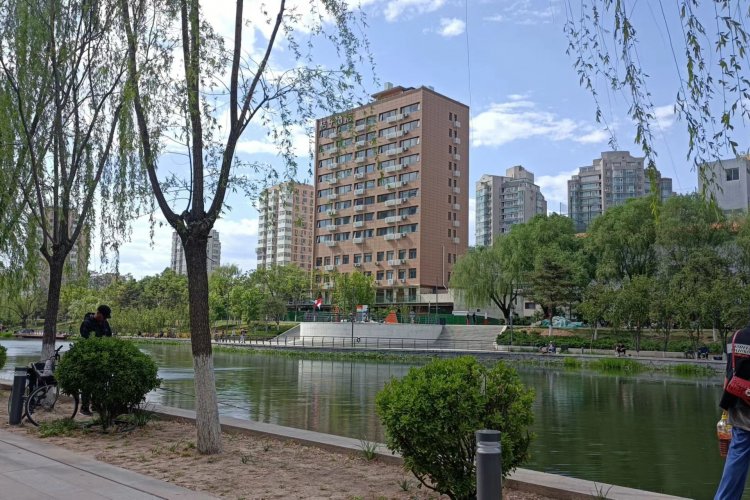Beicology: A Zero Emissions Future for Once Smoggy Beijing?
Our semi-regular Beicology column details the capital's environmental news.
Beijing Could Bid Smog Adieu... by 2050
Tough as it is to imagine right now, Beijing might one day be emissions-free. Anyone who has endured a high AQI day in the notoriously smoggy capital will be pleasantly surprised to read new findings in Current Opinion in Environmental Sustainability report which boldly declares Beijing will have zero CO2 emissions by 2050.
The researchers are basing their findings on targets set by the Paris Climate Accord, which indicate Beijing's annual CO2 levels will peak with 95 million tons by 2020, before rapidly decreasing to 72 million tons of annual CO2 until 2030. From there a gradual reduction to zero is attainable in the next two decades.
In order to achieve those ends, the reports say Beijing will be turning to "decarbonization of transport, zero-emissions space heating, and negative emissions technologies." However, the researchers also warn: "The last one involves complex societal dilemmas around its application. A continued technological dependence on fossil fuels and decreasing motivation for a transition to sustainable energy could both jeopardize it."
Pumping the Breaks On Cleaner Cars
Will those sustainability experts need to adjust their 2050 prediction? A new policy for electric cars certainly doesn't bode well in that regard. According to the South China Morning Post, the Chinese government will cut subsidies on such new energy vehicles (NEVs) by up to 60 percent, leading to a likely dip in short-term sales.
The SCMP article goes on to say: "The new measures call for a steady increase in the energy density threshold for the NEV power battery system and energy consumption requirement while raising the mileage threshold for the continuous driving of electric cars." Reuters, meanwhile, explains that officials have slashed in subsidies in order for "the market to improve product quality and standards." The cuts come just as the industry is picking up speed, with electric car sales increasing by 61.7 percent in China in 2018.

A Promising Partnership With South Korea
Despite that perceived speed bump in the once brisk electric car industry, environmentally-conscious Beijingers can at least take solace when it comes to one of the country's primary polluters: coal power plants. Those sooty energy sources are the target of a new initiative between China and South Korea, which have pledged to "work together on reducing their dependency on coal-based power plants and seek more environmentally-friendly energy sources that can help reduce fine dust," according to Korean news outlet Yonhap.
The agreement was struck in Beijing earlier this week between South Korea's industry ministry and high-ranking Chinese governmental officials like the head of the National Energy Administration and the head of the State Administration for Market Regulation.
To reach their goal, officials agreed to hold a regular joint technology forum to explore emission reduction methods and collaborate on a power grid system spanning the 374km between China's Weihai to Seoul's eastern suburbs.
One can only hope that such international collaborations might offset setbacks like the recent car subsidy cuts so that Beijing (and many more locales) can become emissions-free, as the aforementioned sustainability study predicts.
READ: The Environmental Treasure Trove Lying Within Your Phone
Photos: South China Morning Post, Yonhap







